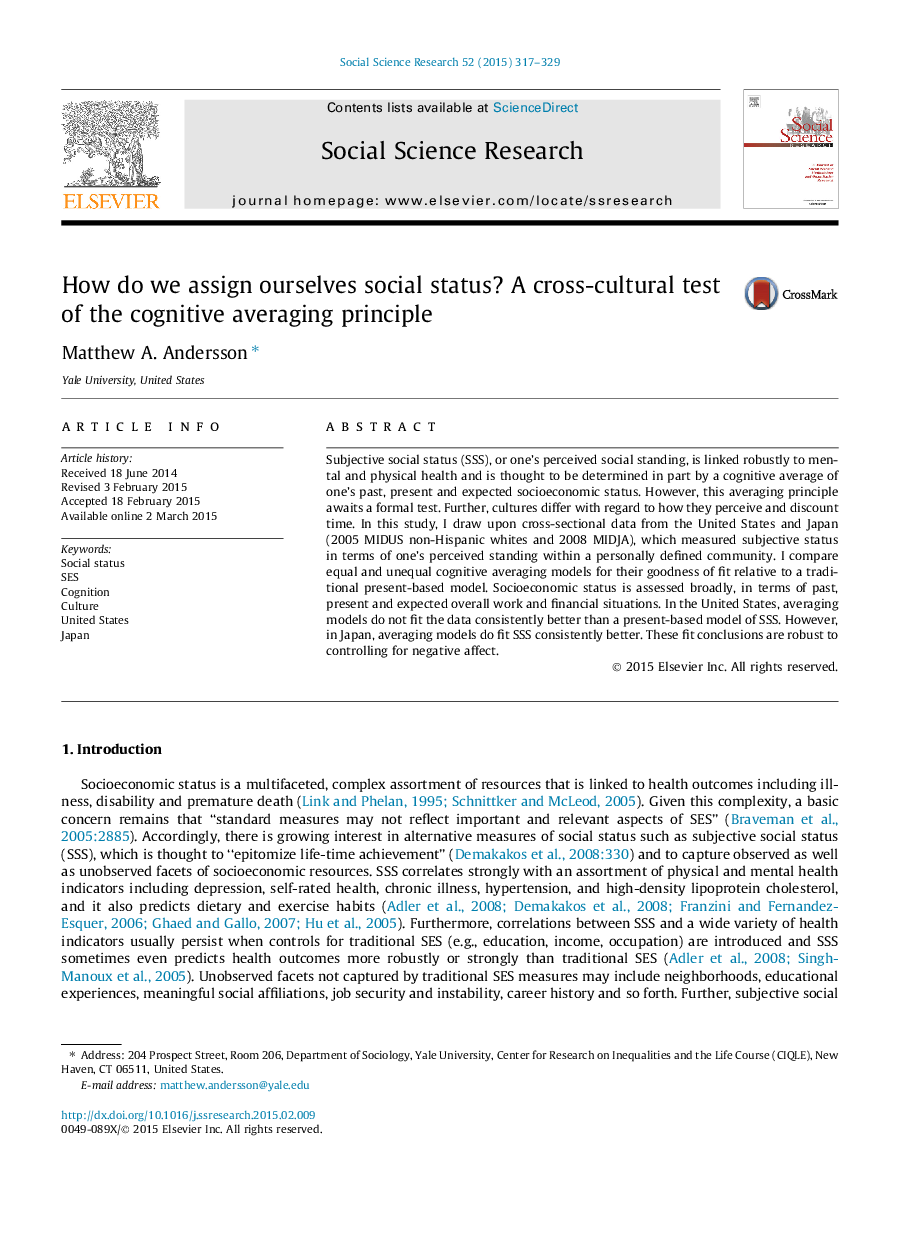| Article ID | Journal | Published Year | Pages | File Type |
|---|---|---|---|---|
| 955703 | Social Science Research | 2015 | 13 Pages |
•Subjective social status (SSS) is linked to diverse measures of physical health.•SSS may be determined by a cognitive averaging mechanism.•Averaging is based on one’s past, present and expected socioeconomic status.•Japan and the United States regard the past, present and future differently.•Averaging explains SSS better in Japan than it does in the USA.
Subjective social status (SSS), or one’s perceived social standing, is linked robustly to mental and physical health and is thought to be determined in part by a cognitive average of one’s past, present and expected socioeconomic status. However, this averaging principle awaits a formal test. Further, cultures differ with regard to how they perceive and discount time. In this study, I draw upon cross-sectional data from the United States and Japan (2005 MIDUS non-Hispanic whites and 2008 MIDJA), which measured subjective status in terms of one’s perceived standing within a personally defined community. I compare equal and unequal cognitive averaging models for their goodness of fit relative to a traditional present-based model. Socioeconomic status is assessed broadly, in terms of past, present and expected overall work and financial situations. In the United States, averaging models do not fit the data consistently better than a present-based model of SSS. However, in Japan, averaging models do fit SSS consistently better. These fit conclusions are robust to controlling for negative affect.
